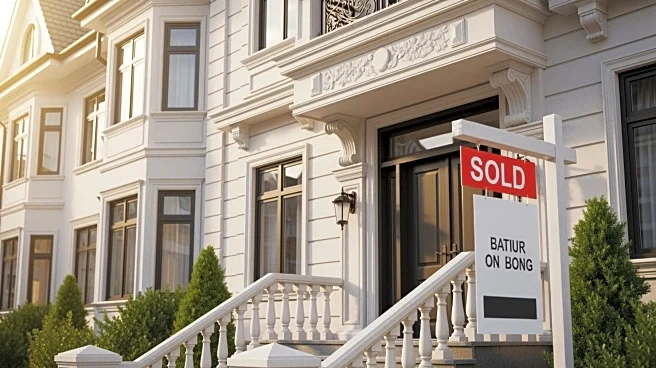What's Happening?
Bill Cosby's Upper East Side townhouse, known as the Luyster Mansion, has found a buyer less than a month after being listed for $29 million. The property, located at 18 E. 71st St., is embroiled in a foreclosure suit due to alleged defaults on $17.5
million in loans. The mansion, designed in 1899 by architect John Duncan, features a limestone façade and copper mansard roof. Despite financial entanglements, the property remains attractive due to its proximity to Central Park and its historical significance.
Why It's Important?
The quick sale of Cosby's townhouse amid foreclosure proceedings highlights the resilience of Manhattan's luxury real estate market, even in the face of scandal. The Upper East Side remains a desirable location for affluent buyers, with properties retaining their value despite financial and legal challenges. This transaction may influence perceptions of real estate investments in areas with historical significance and architectural grandeur, potentially affecting market dynamics and investor strategies.
What's Next?
The sale of Cosby's townhouse could lead to further scrutiny of luxury real estate transactions involving high-profile individuals. Legal proceedings related to the foreclosure may continue, impacting the financial landscape for similar properties. Real estate agents and investors might focus on marketing properties with historical and architectural significance, leveraging their appeal to attract buyers despite potential legal issues.
Beyond the Headlines
The sale of Cosby's townhouse underscores the enduring appeal of properties with historical and architectural significance. The Luyster Mansion exemplifies the neo-French Classic style, a testament to Manhattan's Gilded Age architecture. This transaction highlights the cultural and historical value of preserving such properties, attracting buyers interested in maintaining architectural heritage.















